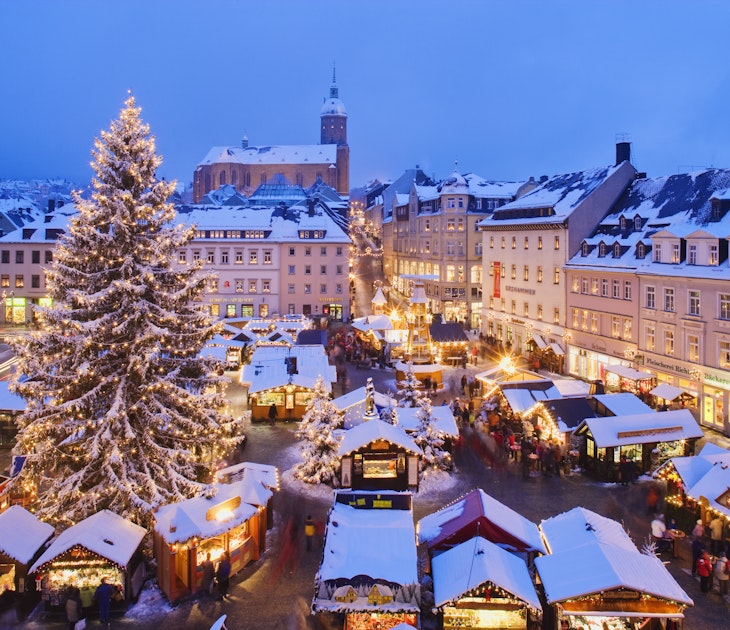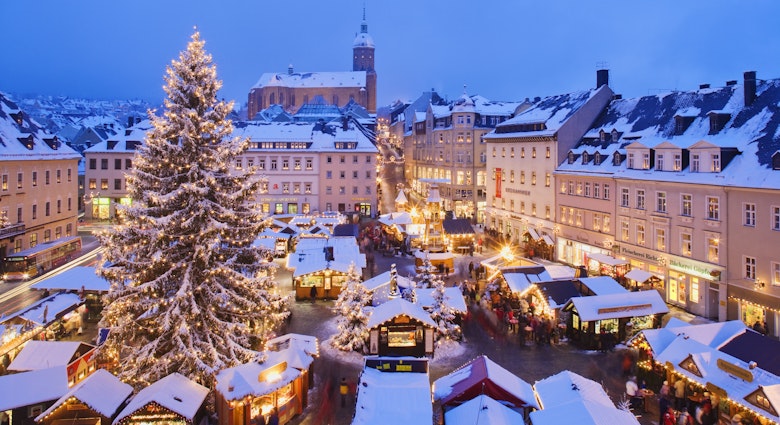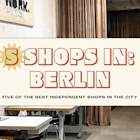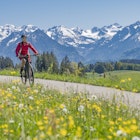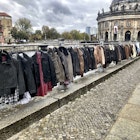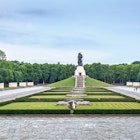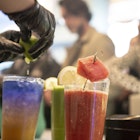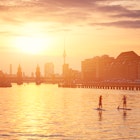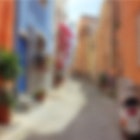For a scene-stealing combo of glamor and grit, poised to mesmerize anyone keen to connect with vibrant culture, bold architecture, global food, intense parties and an easy-going vibe, head to Berlin.
Whether your tastes run to posh or punk, you can sate them in the German capital. Here are the best experiences Berlin has to offer.

1. See the treasures of Museum Island
Berlin’s "Louvre on the Spree", this imposing cluster of five treasure-houses is an undisputed highlight of the city’s impressive landscape. Declared a Unesco World Heritage Site in 1999, Museumsinsel showcases art and cultural history from the Stone Age to the 19th century.
Feast your eyes on antiquities at at the Pergamonmuseum and Altes Museum, take in 19th-century art at the Alte Nationalgalerie and lean in for close-ups of medieval and Renaissance sculptures at the Bode-Museum. The Neues Museum is famous as the residence of the exquisite but controversial bust of Nefertiti which has been the subject of repatriation requests from Egypt for almost a century.
Planning tip: As part of the ambitious Museum Island Master Plan, the Pergamonmuseum will be completely closed to visitors starting October 23, 2023. The institution is not scheduled to partially reopen until spring 2027 – with some sections of the museum, including the famous Ishtar Gate, scheduled to stay closed until 2037.

2. Follow the legacy of the Berlin Wall
Few events in history have the power to move the entire world. If you were alive and old enough for the fall of the Berlin Wall in 1989, you will probably remember the crowds of euphoric revelers cheering and dancing at the Brandenburg Gate. Although little is left of the physical barrier, its legacy lives on in the imagination and in such places as Checkpoint Charlie, the Gedenkstätte Berliner Mauer (Berlin Wall Memorial) and the East Side Gallery with its colorful murals.
3. Party at Berlin's world-famous clubs
Berlin’s reputation for intense and unbridled nightlife is rooted in the libertine 1920s when everyone from Marlene Dietrich to Christopher Isherwood partied like it was 1999. Since the fall of the Wall, Berlin’s club culture has put the city firmly back on the map of music-lovers everywhere.
The edgiest clubs can be found in locations like power plants, abandoned apartment buildings and other repurposed locations, especially in Kreuzberg & Neukölln and Friedrichshain. Electronic music dominates at cult favourites like ://about blank, Kater Blau and Griessmühle, while Prince Charles has made a name for itself as a hip hop mecca, fetish-focused KitKatClub is a must, and the local punks mosh away at SO36.
Planning tip: Some of Berlin's best parties are its daytime raves: here's how to hit the clubs in the afternoon.
4. Enjoy drinks outdoors
Whether its beer gardens, rooftop bars or some casual drinks in parks and by the Landwehrkanal, Berliners take a relaxed approach to drinking and socializing outdoors. While Berlin has something to offer all year round, the city in the warm weather has a special buzz around it.
5. Be dazzled by the grandeur of Schloss Charlottenburg
An exquisite baroque palace, Schloss Charlottenburg evokes the onetime grandeur of the Prussian royals. It is particularly special to visit in the summer when you can fold a stroll, sunbathing session or picnic in the lush palace park into a day of peeking at royal treasures.
6. Book ahead to visit the Reichstag
It’s been burned, bombed, rebuilt, buttressed by the Berlin Wall, wrapped in fabric and finally turned into the modern home of the German parliament, the Reichstag is one of Berlin’s most iconic buildings. Designed by Paul Wallot in 1894, this is where the German parliament, the Bundestag, has been hammering out its policies since 1999.
Planning tip: Reserve online in advance to visit the striking glass dome for free. This is a government building and you will need to provide identification to gain access.
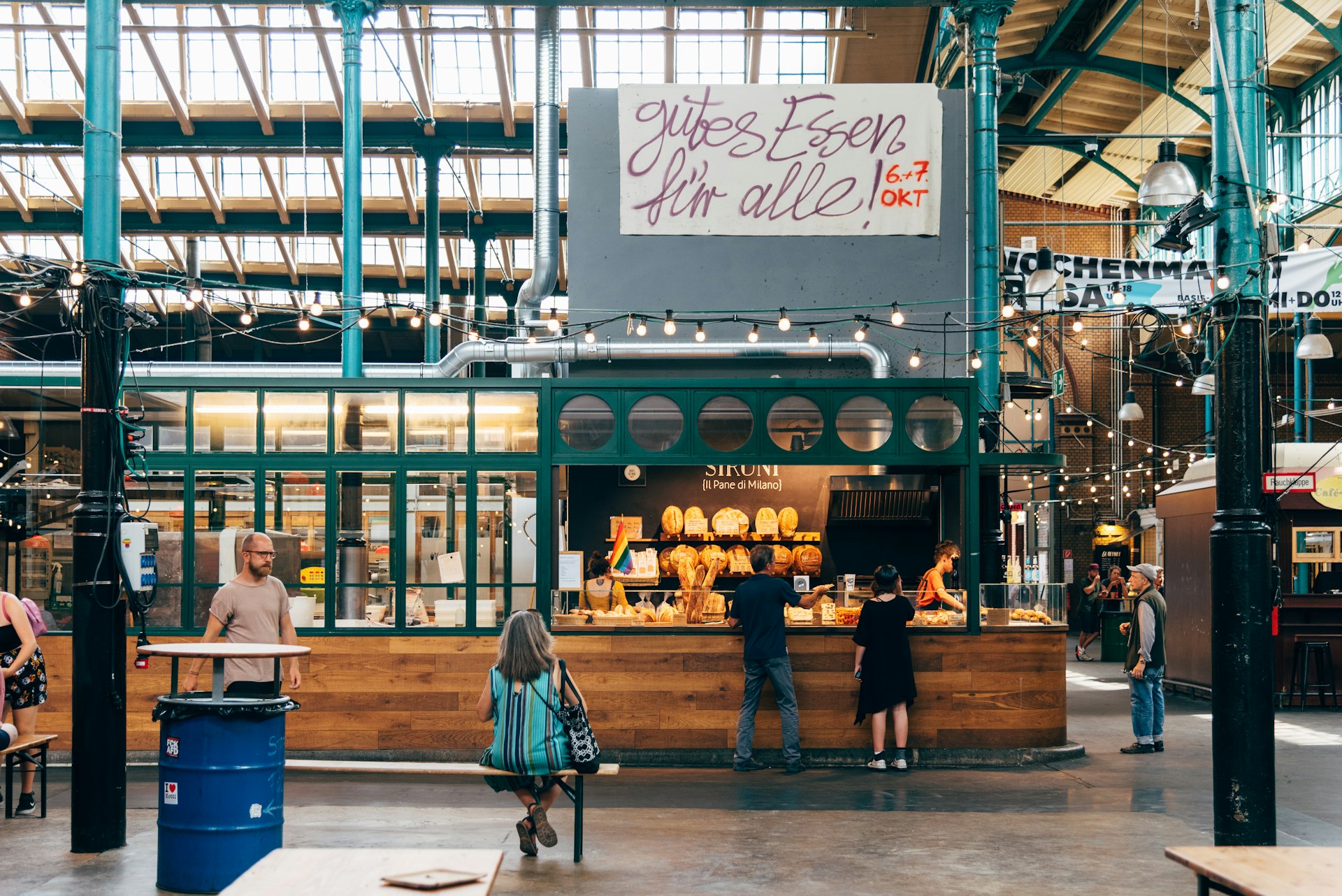
7. Shop and eat at Markthalle Neun
This delightful 1891 market hall was saved by dedicated locals in 2009. Not only do local and regional producers present their wares but also, on Street-Food Thursday, they're joined by aspiring or semipro chefs, who set up their stalls to serve delicious snacks from around the world. There’s even an on-site craft brewery, Heidenpeters.
8. Tour Berlin's art scene
Art aficionados will be truly spoilt for choice in Berlin. Home to hundreds of galleries, scores of world-class collections and thousands of international artists, the city has assumed a pole position on the global artistic circuit. Its main contemporary art showcase is the Hamburger Bahnhof, a vast museum housed in a former railway station whose loft and grandeur are the perfect foil for this top-notch collection of paintings, installations, sculptures and video.
Local tip: If you’d prefer something even more Berlin-centric, try Urban Nation in Schöneberg. A relative newcomer to Berlin’s array of galleries, this street art celebration turns the concept of a museum on its head and celebrates art in a unique way.
9. Get to know Jewish history and culture at Jüdisches Museum
Berlin’s Jüdisches Museum presents an eye-opening and emotional journey through 2000 years of Jewish history in Germany, not just the 12 years of Nazi horror that such exhibits often focus on. Find out about Jewish cultural contributions, holiday traditions, the difficult road to emancipation, outstanding individuals like the philosopher Moses Mendelssohn and jeans inventor Levi Strauss, and the fates of ordinary people and families.
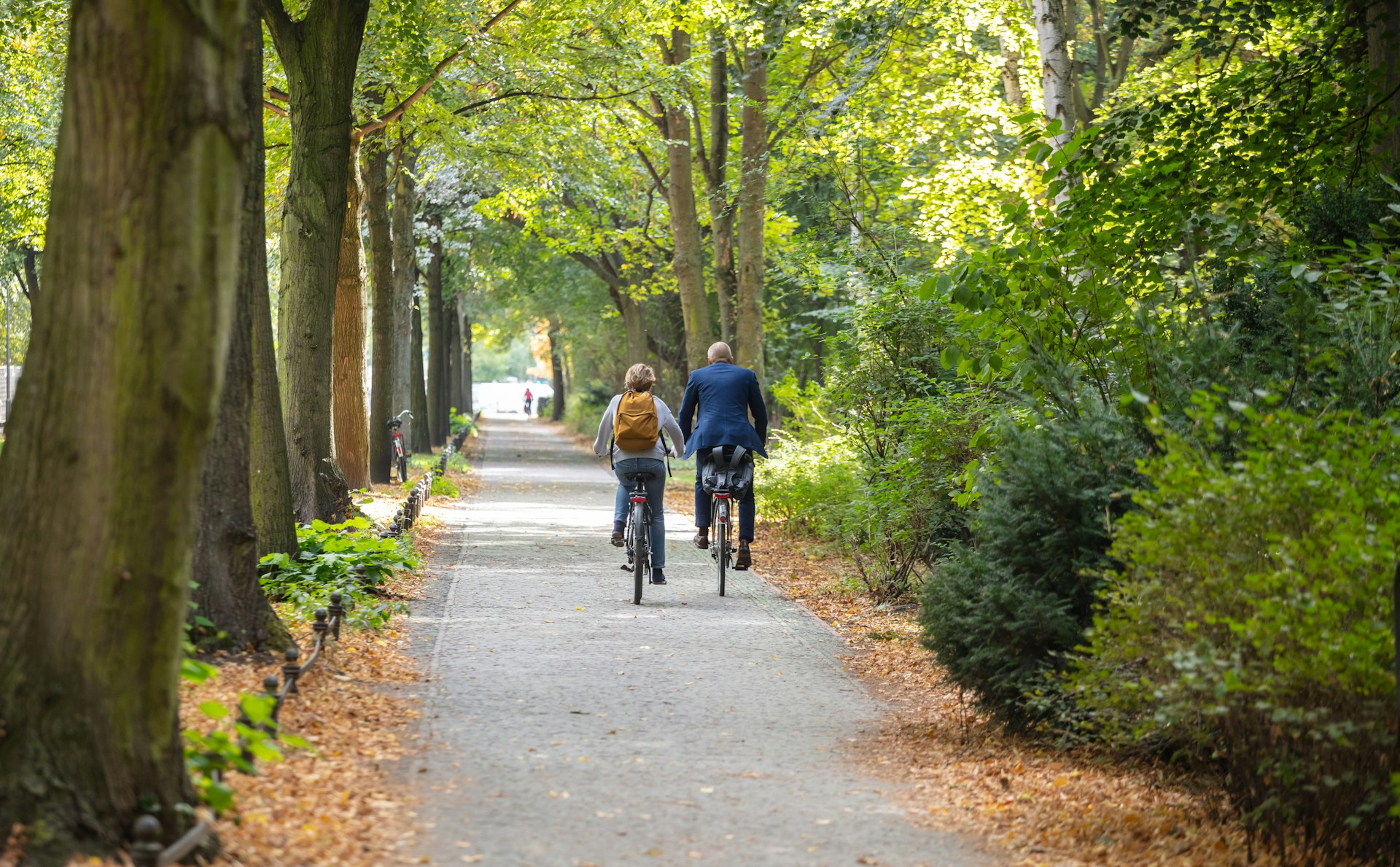
10. Wander or cycle the paths of Tiergarten
Berlin’s rulers used the grounds to hunt boar and pheasants in the rambling Tiergarten until master landscape architect Peter Lenné landscaped the grounds in the 18th century. With its sweeping lawns, shaded paths, woodsy groves, romantic corners, ponds and creeks, the Tiergarten is one of the world’s largest city parks and a wonderful retreat from the city bustle.
Planning tip: In summer, several charming beer gardens beckon, including Café am Neuen See and the Teehaus im Englischen Garten.
11. See urban renewal at Potsdamer Platz
Despite the name, Potsdamer Platz is not actually a square but an entire city quarter, forged in the 1990s from terrain once bisected by the Berlin Wall. A collaborative effort by the world's finest architects, it is considered a showcase of urban renewal.
Planning tip: The area itself is rather compact and quickly explored – unless you stick around to see Berlin from above from the Panoramapunkt or dive into German film history at the Museum für Film und Fernsehen.
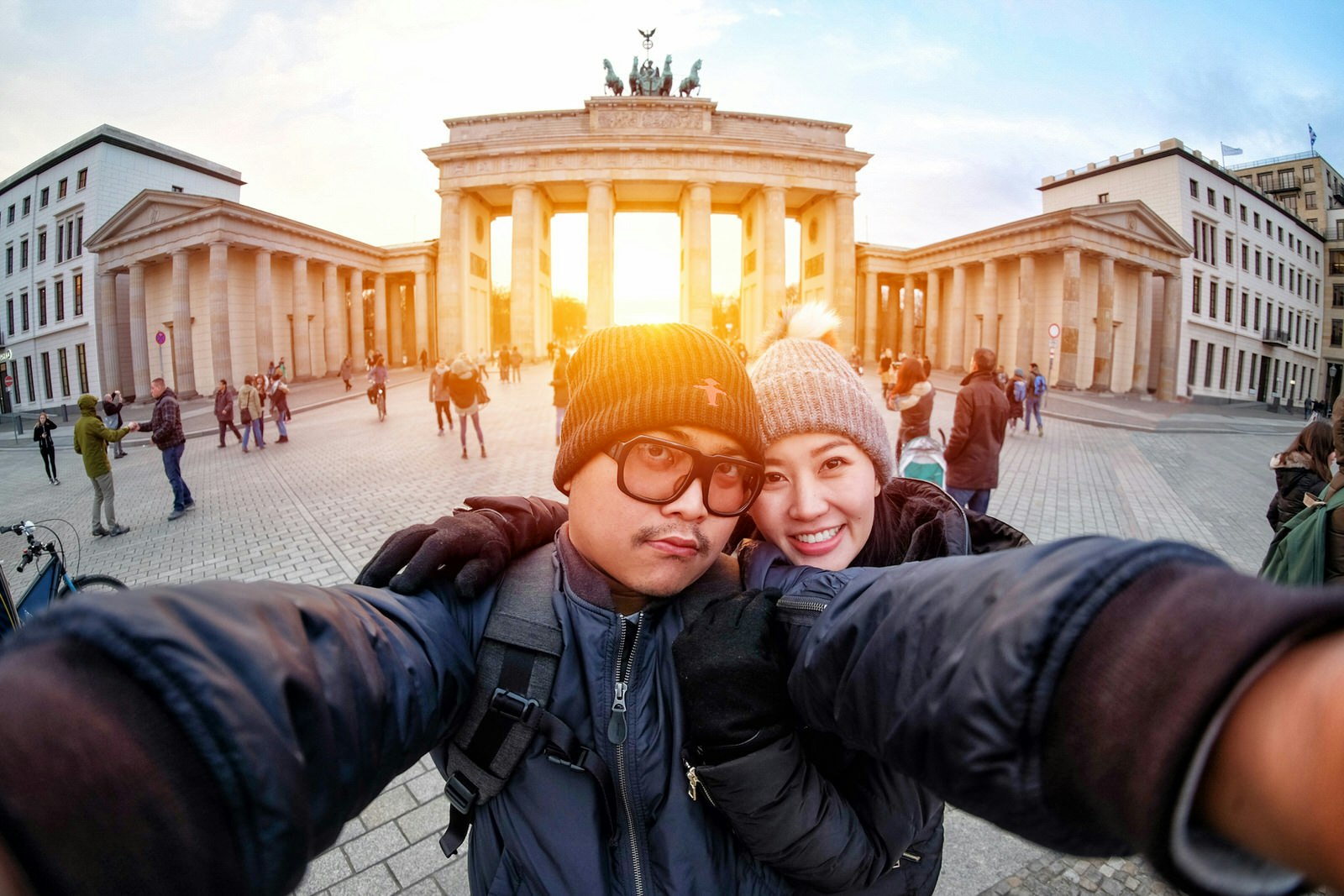
12. Pose for a photo at the historic Brandenburg Gate
Prussian emperors, Napoleon and Hitler have marched through this neoclassical royal city gate that was once trapped east of the Berlin Wall. Since 1989 Brandenburg Gate has gone from a symbol of division and oppression to the symbol of a united Germany. The elegantly proportioned landmark is at its most atmospheric – and photogenic – at night, when light bathes its stately columns and proud Goddess of Victory sculpture in a golden glow.
13. Go shopping along Kurfürstendamm
No trip to Berlin would be complete without a saunter along Kurfürstendamm (Ku’damm for short) in Charlottenburg. Along with its continuation, the Tauentzienstrasse, it is the city’s longest and busiest shopping strip, lined with high-street chains and designer boutiques. Don’t miss the KaDeWe, continental Europe’s biggest department store with a mind-boggling food hall, or the cutting-edge concept and flagships stores at Bikini Berlin, a revamped 1950s landmark near Zoo Station.
Local tip: Take a moment to look up. Amid all this, the majestically ruined Gedächtniskirche (Memorial Church) stands quietly as a poignant reminder of the absurdity of war.
14. Explore the exhibits of the Topographie des Terrors
In the spot where the most feared institutions of Nazi Germany (the Gestapo headquarters, the SS central command and the Reich Security Main Office) once stood, this compelling exhibit documents the stages of terror and persecution, puts a face on the perpetrators, and details the impact these brutal institutions had on all of Europe. A second exhibit outside zeroes in on how life changed for Berlin and its people after the Nazis made it their capital.

